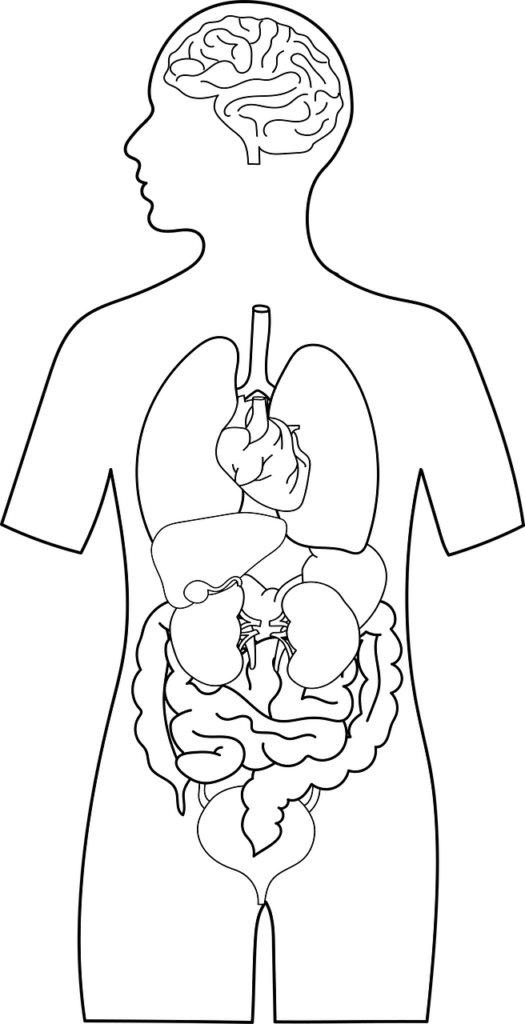In the quest for holistic well-being, trust your gut and follow your heart – quite literally. Recent revelations in medical research illuminate the profound interplay between your cardiovascular system and your digestive health. In this comprehensive exploration, we’ll traverse the terrain of gut ecology, its influence on heart health, and the mechanisms that tie them together, leaving no stone unturned.
The Gut-Heart Connection: Microbes as Heart Health Allies
Within your gastrointestinal tract thrives an intricate ecosystem of a staggering one hundred trillion bacteria, representing an array of distinct species, each with its own role. These microorganisms are not just passive residents; they actively contribute to your health by aiding in food digestion, metabolizing medications, and shielding you from invading pathogens. However, an imbalance in this delicate ecosystem can extend its repercussions far beyond mere digestive discomfort – it can ripple into the realm of cardiovascular health.
Understanding the Ramifications of Gut Imbalance
The relationship between gut and heart health has long piqued the curiosity of researchers. Recent investigations have unearthed compelling evidence, revealing that changes in certain types of gut bacteria are intricately linked to the following cardiovascular factors:
1. High Blood Pressure: Shifts in the composition of gut bacteria have been correlated with the development of high blood pressure, a major risk factor for heart-related conditions.
2. Altered Cholesterol Levels: Your gut microbiome plays a role in determining your cholesterol levels, with an imbalanced gut potentially leading to lower levels of HDL, the ‘good’ cholesterol.
3. Heart Disease: Emerging research underscores the significance of gut health in the genesis of heart disease, a leading cause of global mortality.
4. Heart Attacks and Strokes: The microbial makeup of your gut may influence your susceptibility to heart attacks and strokes.
5. Heart Failure: Gut health may even factor into the onset of heart failure, a condition where the heart’s pumping efficiency diminishes.

Unraveling the Mechanisms
So, what lies beneath this intriguing connection between your gut and heart? Researchers posit that the key might lie in the compounds generated by gut bacteria during the breakdown of specific foods. An imbalance in your gut microbiome can result in an overproduction of substances that can raise cholesterol levels and harm blood vessels, ultimately affecting your cardiovascular health.
The Underexplored Facets: SIBO, Infection, Dysbiosis, and Intestinal Permeability
Beyond the already established links, other facets of gut health are beginning to reveal their influence on heart health:
Small Intestinal Bacterial Overgrowth (SIBO):
Individuals with SIBO may face elevated arterial stiffness and reduced activation of matrix Gla protein, a key factor in preventing blood vessel calcification (1).
Infection:
Pathogenic bacteria like Chlamydia pneumoniae and Helicobacter pylori have been associated with higher rates of atherosclerosis, a buildup of plaque in the arteries (2, 3). In a particular study, it was observed that patients suffering from chronic heart failure harbored significantly higher levels of pathogenic bacteria in comparison to individuals with normal health. These included bacteria such as Campylobacter spp., Shigella spp., Salmonella spp., Yersinia enterocolitica, and Candida spp. Furthermore, it has been documented that bacterial DNA can be detected in over 50 percent of all arterial plaques (4, 5).
Dysbiosis:
Gut dysbiosis, characterized by an imbalance in gut bacteria, may precede the development of cardiovascular disease, leading to systemic inflammation. In a particular research investigation, it was discovered that animals afflicted with hypertension exhibited an elevated Firmicutes-to-Bacteroidetes ratio within their gut microbiome. Simultaneously, they displayed a diminished variety and richness of gut bacteria. Additionally, these animals demonstrated reduced levels of microbial metabolites such as acetate and butyrate, which were observed to correspond with heightened systemic inflammation. Likewise, individuals suffering from chronic heart failure have been documented to possess decreased diversity in their gut microbiota and lower prevalence of crucial bacterial genera (6, 7).
Intestinal Permeability:
A leaky gut can allow bacteria and their products to enter the bloodstream, leading to inflammation and potentially destabilizing arterial plaques, increasing the risk of heart attack (8).
Leaky gut can potentially contribute to heart disease by triggering inflammation and undermining plaque stability. The stability of arterial plaque plays a crucial role in the risk of heart attacks, as the rupture of a plaque and its subsequent blockage of an artery can be the initial event leading to a heart attack. Notably, individuals with chronic heart failure exhibit higher levels of intestinal permeability when compared to healthy individuals (9, 10).
Preserving Gut Health for a Robust Heart
While the scientific community delves deeper into unraveling the intricacies of this connection, you can take proactive steps to nurture your gut health and fortify your heart’s well-being. Here’s a practical guide to daily practices:
1. Foster a Balanced Microbiome: Your gut houses trillions of microorganisms that make up your microbiome. This dynamic ecosystem plays a crucial role in your overall health, including your heart health. To nurture your gut and heart, prioritize a diet rich in fiber, prebiotics, and probiotics. These nourish beneficial gut bacteria, aiding in digestion and reducing inflammation—a cornerstone of heart disease prevention.
2. Mindful Eating: In Functional Medicine, we emphasize the importance of mindful eating. Slow down, savor your meals, and chew your food thoroughly. This practice not only aids digestion but also helps reduce stress, which can have adverse effects on both the gut and the heart.
3. Balance Your Blood Sugar: Balancing blood sugar levels and limiting excessive carbohydrate intake are crucial aspects of nurturing both heart and gut health
4. Limiting Excessive Carbohydrate Intake: Be selective about your carbohydrate sources.
Limit refined carbohydrates like sugary snacks, white bread, and sugary beverages. These can contribute to inflammation and increase the risk of heart disease.
Consider consuming most of your carbohydrates earlier in the day when your body is more insulin-sensitive. This can help with better blood sugar control throughout the day.
5. Limit Inflammatory Foods: Chronic inflammation is a significant contributor to heart disease and gut dysfunction. Reduce your intake of processed foods, sugar, trans fats and refined vegetable oils as these can trigger inflammation. Opt for anti-inflammatory foods like leafy greens, fatty fish, and colorful low-glycemic fruits and vegetables.
6. Protein and Healthy Fats: Include protein and healthy fats in your meals and snacks. These nutrients provide satiety and help prevent rapid rises in blood sugar. Good sources include meats, fish, nuts, seeds, and avocado.
7. Manage Stress: Stress affects both the gut and the heart. Incorporate stress-reduction techniques like meditation, deep breathing, and regular exercise into your routine. These practices can help balance the gut-heart connection by reducing cortisol levels and promoting overall wellness.
8. Stay Hydrated: Proper hydration is essential for gut health and maintaining blood flow to the heart. Aim to drink plenty of water throughout the day, which also aids in digestion and nutrient absorption.
9. Regular Physical Activity: Exercise is a powerful tool for nurturing both your gut and heart. It helps maintain a healthy weight, improves circulation, and supports a diverse gut microbiome. Strive for a mix of aerobic and strength-training exercises to optimize your health.
10. Sleep Well: Quality sleep is when your body rejuvenates and repairs itself. Aim for 7-9 hours of restorative sleep per night to keep your gut and heart in prime condition.
11. Supplement Wisely: Consult with a Functional Medicine practitioner to determine if specific supplements like omega-3 fatty acids, digestive enzymes or magnesium could be beneficial for you.
12. Take probiotics:
In both animal experiments and human trials, Lactobacilli (a type of probiotic) have demonstrated the ability to lower blood cholesterol levels. This effect may be attributed to certain bacteria expressing the enzyme bile salt hydrolase, which influences the reabsorption of cholesterol in the intestines (11, 12). Additionally, several studies have reported notable improvements in total serum cholesterol, LDL cholesterol, and the LDL:HDL cholesterol ratio with the consumption of probiotic-containing yogurts (13, 14, 15).
A systematic review and meta-analysis, has revealed that probiotics can effectively lower both systolic and diastolic blood pressure (16). The most significant reductions were observed in studies where participants had elevated baseline blood pressure, consumed a variety of probiotic strains, engaged in interventions lasting eight weeks or more, or consumed daily doses exceeding 100 billion colony-forming units (CFU).
In Conclusion:
In the midst of ongoing research, these proactive measures serve as a shield, nurturing your gut health and safeguarding the well-being of your heart. As science continues to illuminate the intricate web that connects your gut and heart, your dedication to these practices may prove invaluable in nurturing your health. This holistic perspective underscores the importance of addressing gut health for a resilient and thriving heart.

